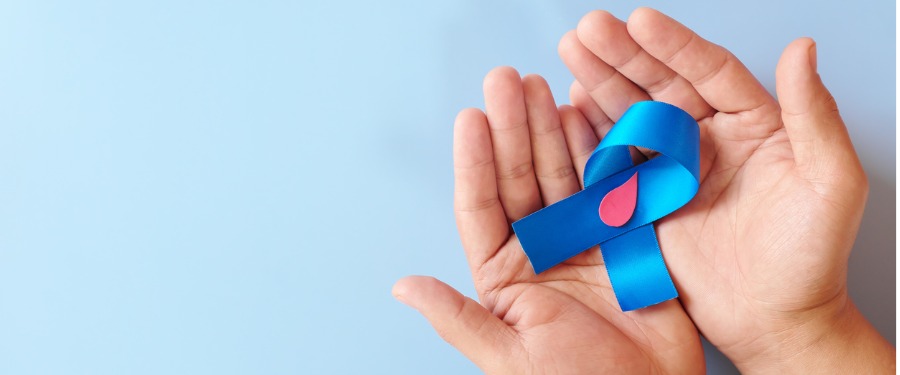Patient perspectives: Clinical trials and Diabetes Awareness Month

Each November is designated as Diabetes Awareness Month, an event that highlights the importance of spreading awareness about diabetes and the health issues it can cause.
To commemorate this event, we’re sharing a patient’s perspective on life with type 1 diabetes. Kristy Birchard is a patient advocate and research professional who works across the industry to bring the patient voice to clinical trials. She was diagnosed with type 1 diabetes at three years old — read her insights below.
The patient perspective on type 1 diabetes
Is the cure for type 1 diabetes actually "only five years away"? Not without clinical trial recruitment.
Over the past seven years, I've had the privilege of cultivating a career dedicated to embedding equitable and meaningful patient involvement in clinical research. My passion for this work is very personal. At three years old, I was diagnosed with Type 1 Diabetes (T1D), an incurable illness that requires constant insulin therapy and glucose management. Diabetes can be a taxing disease — physically, mentally, emotionally, and socially — and many people with diabetes feel isolated while facing the grim realities of our struggles.
Earlier this year, I spoke about my experience as a type 1 diabetic for a screening of the documentary The Human Trial, directed by fellow diabetic Lisa Hepner. This documentary followed three participants in a T1D clinical trial, highlighting their struggles with the disease and their motivation to participate. I told Lisa that watching the film felt like "a very needed, warm hug" because it was the first time I had seen an accurate, holistic depiction of my lived reality on screen. She brilliantly showcased not only our shared experiences with this disease but also the complicated relationship we have with hope. In our panel discussion, we painfully laughed at what's been long said (informally) by diabetes providers: "The cure is only five years away." The reason we laughed? They were telling us that in the 90s. While we are much closer to a cure today, many of us have become jaded due to a lack of transparency from the research community.
The Human Trial gave the audience a clearer sense of what researchers have been working on for many years. Lisa asked questions important to patients — some that, unfortunately, do not have answers. These conversations were transformative and healing, and created a compelling case that there's an urgent need to repair tensions between T1D patients and the biomedical community to make process.
Unfortunately, researchers can't move the needle forward unless more participants are recruited into clinical trials. The Juvenile Diabetes Research Fund (JDRF) reports a shortage of T1D participants for clinical trials in the United States and states that around 20,000 individuals are needed to participate.
The key to clinical trial recruitment is understanding where outreach approaches fail to connect with our community. In the 30 years I've had diabetes, I've never had an endocrinologist discuss clinical trials with me, nor have I seen any clinical trial education materials in an office…but I have been told that the cure is just around the corner. My knowledge of clinical trials has solely been through my own advocacy and professional journey. Viewing The Human Trial was my main influence to search for clinical trials online independently.
To add to the plot, the T1D community in the United States has historically had a fraught relationship with big pharma. Insulin is still not affordable for too many of us. There are serious health equity issues. We face significant financial burdens — and too many of us have died from rationing insulin. We are exhausted from the amount of difficulties handed to us alongside this diagnosis. We know we need a cure, but who supports us until we reach that point? I don't believe we'll reach recruitment goals for clinical trials or come closer to a cure until there is a significant effort to alleviate patient stress and facilitate meaningful communication between diabetics and researchers, as Lisa has done in The Human Trial.
Clinical trial search tools like Antidote's are necessary to bridge these communication gaps between researchers and patients. Immediately after watching the documentary, I searched for clinical trials and found Antidote's extensive T1D database. It was easy, accessible, and intuitive to find trials that I was eligible to participate in. While I didn’t find one close enough to me, it opened a new world of opportunities and information. I know now that I can opt in to update emails or regularly check Antidote's database to learn about what researchers are studying and whether I am eligible to participate.
We're at a pivotal moment for T1D research. I'm thankful for tools like Antidote's that will empower patients to search for clinical trials, take matters into their own hands when ready, and connect them with the right research sites. These tools will help repair the relationships between researchers and patients and accelerate the cure for type 1 diabetes.
Topics: For Patients